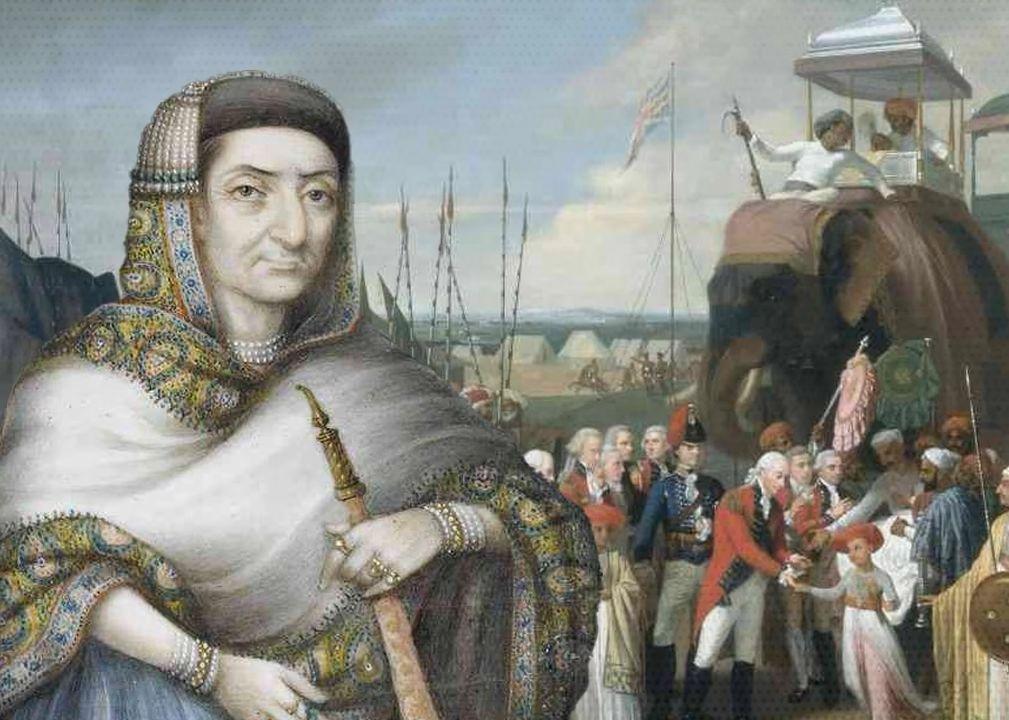
Women Entrepreneurs in Indian History: Begum Samru & Jibhabu
In the 18th and 19th centuries, Indian history witnessed the rise of two remarkable women entrepreneurs who defied societal norms with their financial expertise and strategic leadership. Begum Samru, the ruler of a 621-square km estate in Sardhana, and Jibhabu of Gujarat, a negotiator with the East India Company, left lasting legacies that continue to inspire women entrepreneurs today.
Begum Samru: The Diplomat
Born as Imhoffiana, Begum Samru was a German courtesan who rose to fame in India during the 18th century. In 1770, she married Gaursiya, a Jat chieftain, and became the ruler of a vast estate in Sardhana, Uttar Pradesh. However, her journey to the throne was not without its challenges. She had to navigate the complex web of Indian politics and diplomacy to secure her position.
Begum Samru’s diplomatic skills were put to the test when she faced opposition from the Rohilla Afghans, who sought to capture her estate. However, she successfully negotiated with the Rohillas, securing a treaty that ensured her rule over Sardhana. Her diplomatic prowess earned her the respect and admiration of her contemporaries, including the British East India Company.
Jibhabu: The Negotiator
Jibhabu, a Gujarati woman, was the daughter of a wealthy merchant who owned a thriving business in the textile industry. In the early 19th century, the East India Company’s growing influence in India posed a significant threat to her family’s business. To protect their interests, Jibhabu negotiated with the Company, securing a contract that allowed her family to continue operating their business.
Jibhabu’s negotiating skills were instrumental in restoring her family’s land revenue business. She successfully convinced the Company to recognize her family’s rights over their land, ensuring their financial security. Her achievement was a testament to her strategic thinking and financial expertise.
Legacy of Begum Samru and Jibhabu
The legacies of Begum Samru and Jibhabu are a reminder that women have always played a significant role in shaping Indian history. Despite the challenges they faced, they demonstrated remarkable leadership skills, financial acumen, and strategic thinking.
Begum Samru’s diplomatic skills and Jibhabu’s negotiating abilities are a testament to the power of women entrepreneurs in India. They proved that women can succeed in male-dominated industries, and their achievements paved the way for future generations of women entrepreneurs.
Lessons for Women Entrepreneurs Today
The stories of Begum Samru and Jibhabu offer several lessons for women entrepreneurs today. Firstly, they demonstrate the importance of strategic thinking and negotiation skills in business. Secondly, they highlight the need for women to be aware of the challenges they may face and to develop coping mechanisms to overcome them.
Moreover, the legacies of Begum Samru and Jibhabu serve as a reminder that women can succeed in any industry, including traditionally male-dominated sectors. They inspire women to take risks, be bold, and pursue their passions, even in the face of adversity.
Conclusion
Begum Samru and Jibhabu are a testament to the power of women entrepreneurs in Indian history. Their stories serve as a reminder that women have always played a significant role in shaping the country’s economic and social landscape.
As we celebrate the achievements of these two remarkable women, we are reminded of the importance of empowering women entrepreneurs. We must continue to support and encourage women to pursue their passions, develop their skills, and take risks.
By doing so, we can create a society that values and respects the contributions of women entrepreneurs, and where they can thrive and succeed.



